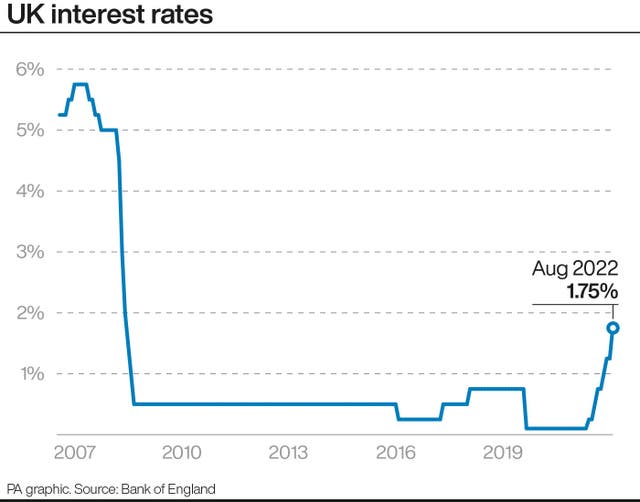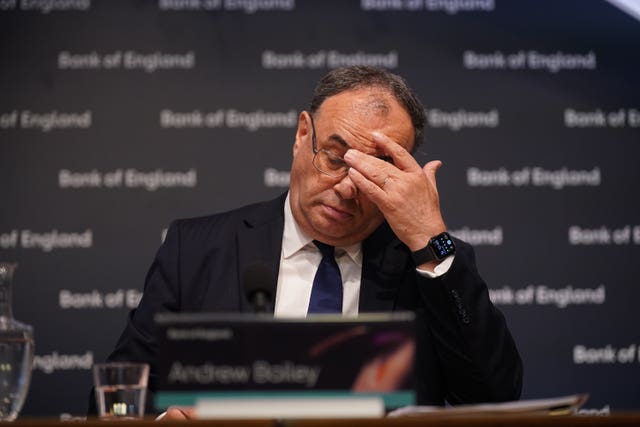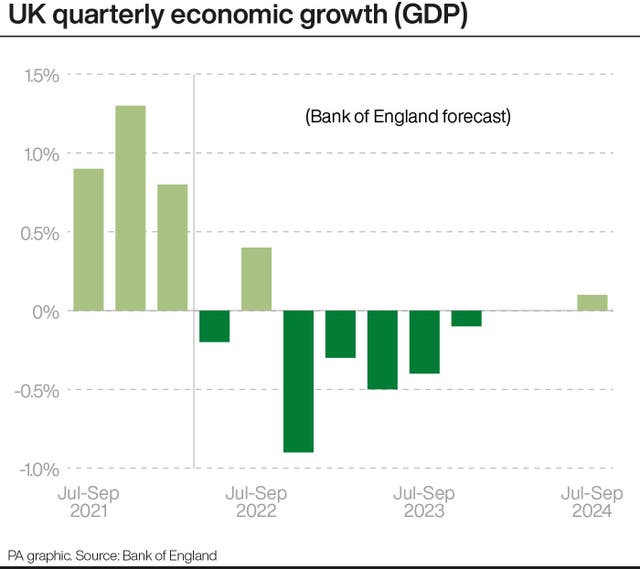
Shelagh Fogarty 1pm - 4pm
4 August 2022, 14:54

Bank of England governor Andrew Bailey said Threadneedle Street had a record of managing ‘political pressure’.
The Bank of England’s independence over monetary policy is “one of the great virtues of our system”, Andrew Bailey said as Threadneedle Street braced for a potential clash with Liz Truss if she becomes prime minister.
The Bank’s governor sought to avoid being drawn on the Tory leadership contest between Ms Truss and Rishi Sunak which has seen the question of interest rates and inflation become a political battleground.
Ms Truss, the bookmakers’ favourite to become the next prime minister, has pledged to re-examine the Bank’s mandate to make sure it has a “tight enough focus on the money supply and on inflation” and one of her allies said the Foreign Secretary would consider whether the current arrangements are “fit for purpose”.

The Bank raised interest rates to 1.75% from 1.25%, the biggest single rise since 1995, with bleak warnings about an economy heading into recession and double-digit inflation causing a squeeze on household incomes.
Ms Truss has insisted she supports the Bank’s independence but will look at other systems around the world when assessing whether it has the correct mandate.
Mr Bailey sought to steer clear of direct comment on the contest and the potential inflationary impact of Ms Truss’s plans for immediate tax cuts.
“It’s not for the Bank of England to get involved in the leadership election that’s taking place for the leader of the Conservative Party and the next prime minister,” he said.
Mr Bailey added: “I look forward to working with whoever the next prime minister is and I’m sure there will be a budget and fiscal policy will be announced, but at this stage I’m not going to go any further than that in commenting on what might or might not happen.”
But he was more forthcoming on the Bank’s mandate and its ability to resist political pressure.
The mandate set in 1997 was “price stability”, with the chancellor setting the precise inflationary target – currently 2%.
“That’s a somewhat different structure to many other countries,” Mr Bailey said.
“The great virtue of our system is it is very clear what the target is.
“But I also make the point that the structure was set up with a very clear mandate of price stability.”
The governor said the system was designed to deal with competing pressures between controlling inflation and achieving economic growth.

He added that “one of the great strengths of being an independent central bank is that actually the political pressures have been very well managed throughout the life of the MPC (Monetary Policy Committee) in my view, and obviously, we’ve had many governments throughout that life”.
Mr Bailey added: “One of the great virtues of our system is that the Bank of England takes these decisions independently, respecting, of course, the importance of the remit.”

His comments came after Suella Braverman, the Attorney General and a supporter of Ms Truss, said: “Interest rates should have been raised a long time ago and the Bank of England has been too slow in this regard.”
She told Sky News: “Liz Truss has made clear that she wants to review the mandate that the Bank of England has, so that’s going to be looking in detail at exactly what the Bank of England does and see whether it’s actually fit for purpose in terms of its entire exclusionary independence over interest rates.”